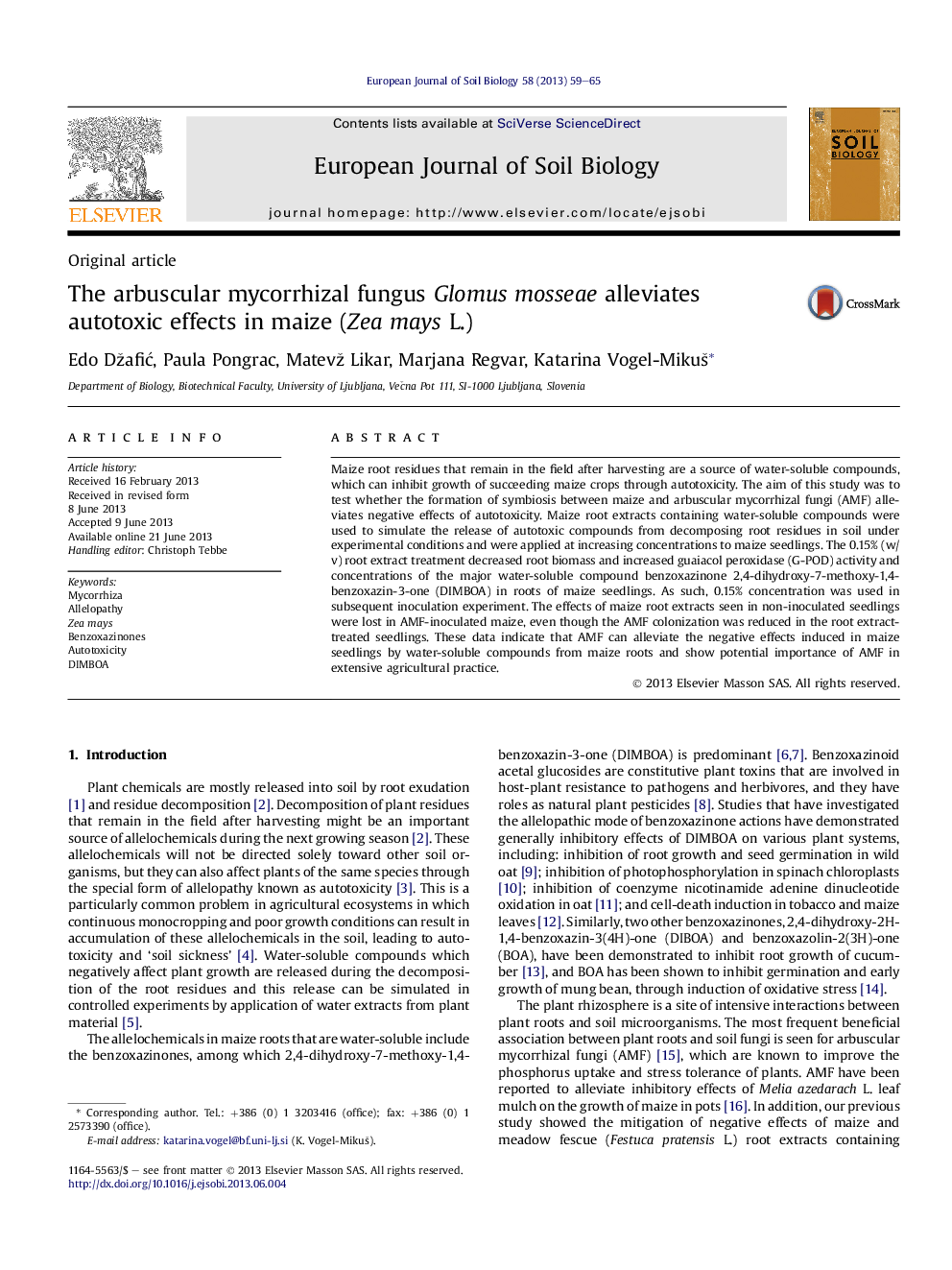| Article ID | Journal | Published Year | Pages | File Type |
|---|---|---|---|---|
| 4391928 | European Journal of Soil Biology | 2013 | 7 Pages |
Abstract
Maize root residues that remain in the field after harvesting are a source of water-soluble compounds, which can inhibit growth of succeeding maize crops through autotoxicity. The aim of this study was to test whether the formation of symbiosis between maize and arbuscular mycorrhizal fungi (AMF) alleviates negative effects of autotoxicity. Maize root extracts containing water-soluble compounds were used to simulate the release of autotoxic compounds from decomposing root residues in soil under experimental conditions and were applied at increasing concentrations to maize seedlings. The 0.15% (w/v) root extract treatment decreased root biomass and increased guaiacol peroxidase (G-POD) activity and concentrations of the major water-soluble compound benzoxazinone 2,4-dihydroxy-7-methoxy-1,4-benzoxazin-3-one (DIMBOA) in roots of maize seedlings. As such, 0.15% concentration was used in subsequent inoculation experiment. The effects of maize root extracts seen in non-inoculated seedlings were lost in AMF-inoculated maize, even though the AMF colonization was reduced in the root extract-treated seedlings. These data indicate that AMF can alleviate the negative effects induced in maize seedlings by water-soluble compounds from maize roots and show potential importance of AMF in extensive agricultural practice.
Related Topics
Life Sciences
Agricultural and Biological Sciences
Soil Science
Authors
Edo DžafiÄ, Paula Pongrac, Matevž Likar, Marjana Regvar, Katarina Vogel-MikuÅ¡,
